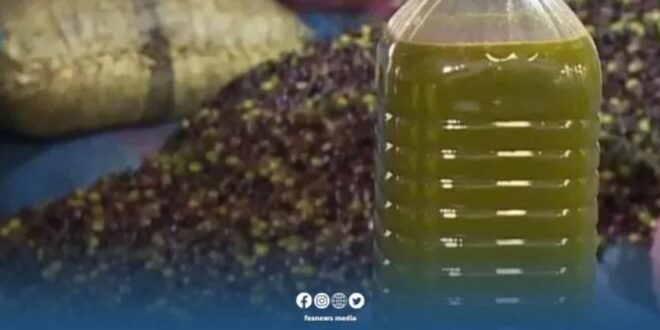The Moroccan government has announced new measures aimed at addressing the challenges facing the olive oil sector in the country. This step comes amid a sharp decline in olive production, with output expected to reach only 950,000 tons in the current season, a decrease of 11% compared to the previous season and 40% compared to the usual annual average.
As part of these measures, the Ministry of Industry and Trade announced the suspension of customs duties and value-added tax on olive oil imports, within an annual quota set at 20,000 tons. This decision will be effective from January 1 to December 31, 2025, and includes both “virgin” and “extra virgin” olive oil types.
This initiative aims to ensure sufficient supplies for the local market and achieve a balance between supply and demand. The government also seeks through this step to support industries related to olive oil and mitigate the negative impact of price increases resulting from production shortages.
A joint ministerial committee has been formed, including representatives from the ministries of trade and agriculture, as well as the customs and indirect taxes administration, to manage the distribution of the customs quota. Those wishing to import must submit their applications to the Ministry of Industry and Trade before January 3, 2025.
It’s worth noting that Morocco is one of the most important olive oil producers in the region, ranking second in North Africa and the Middle East after Tunisia, and ninth globally. However, the sector has been severely affected by harsh weather conditions, especially the drought that has persisted for nearly six years.
These measures come as part of the Moroccan government’s efforts to support the agricultural sector and protect consumers from market fluctuations. This step is expected to help alleviate the burden on citizens, especially in light of the current economic conditions.
 فاس نيوز ميديا جريدة الكترونية جهوية تعنى بشؤون و أخبار جهة فاس مكناس – متجددة على مدار الساعة
فاس نيوز ميديا جريدة الكترونية جهوية تعنى بشؤون و أخبار جهة فاس مكناس – متجددة على مدار الساعة













